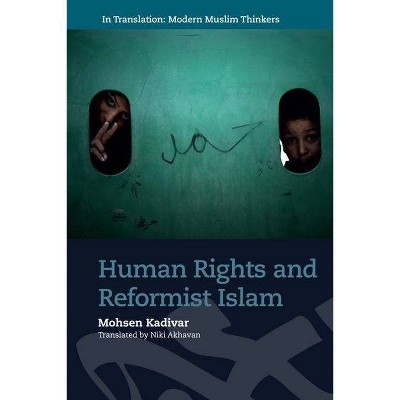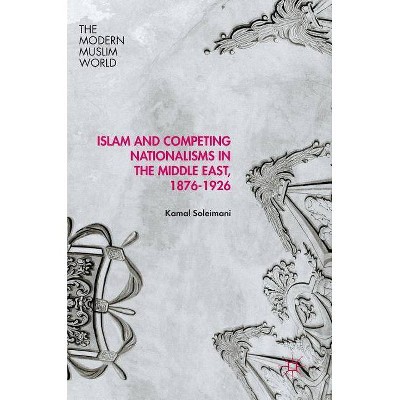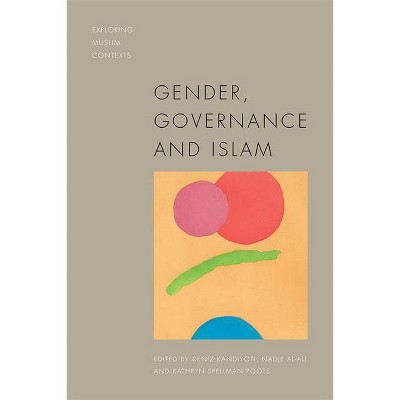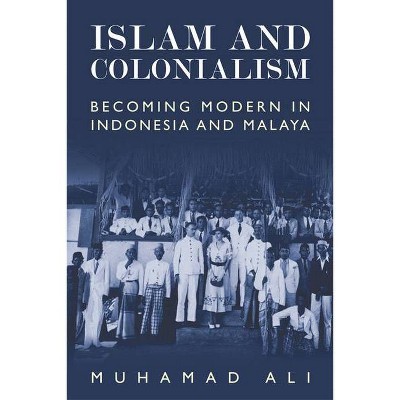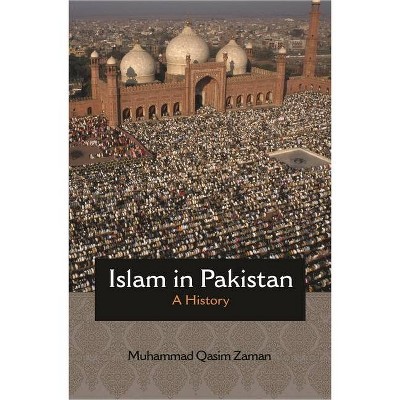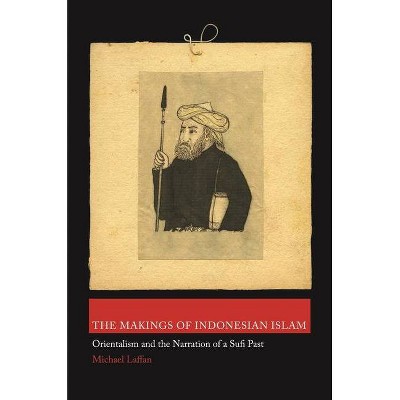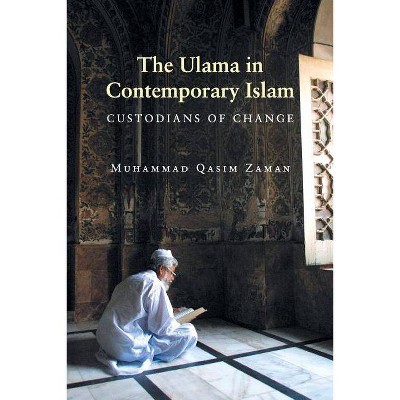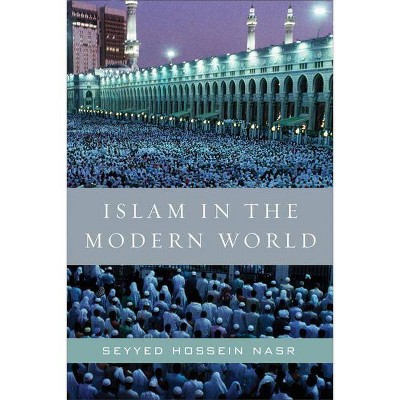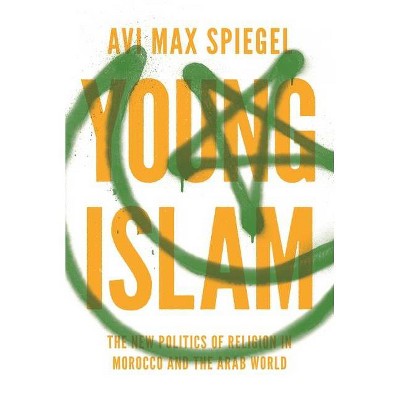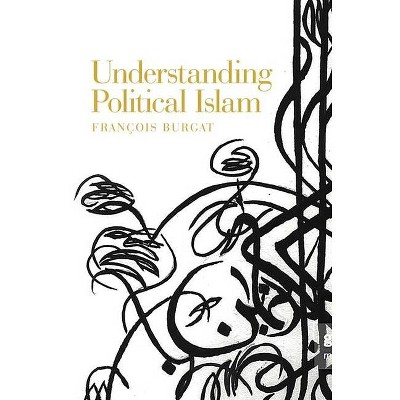Islam and the Foundations of Political Power - (In Translation: Modern Muslim Thinkers) by Ali Abdel Razek (Paperback)
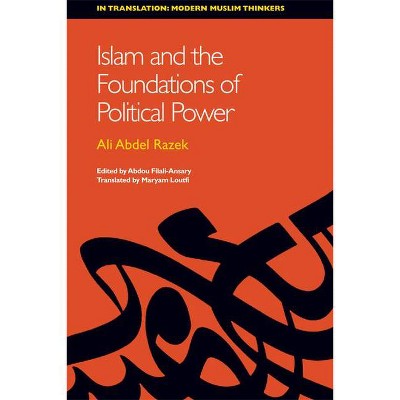
Similar Products
Products of same category from the store
AllProduct info
<p/><br></br><p><b> About the Book </b></p></br></br>The translation of an essay first published in Egypt in 1925, which took the contemporaries of its author by storm. At a time when the Muslim world was in great turmoil over the question of the abolition of the caliphate by Mustapha Kamal Ataturk in Turkey Ali Abdel Razek, a religious cleric trained at Al-Azhar University, argued in favour of secularism.<p/><br></br><p><b> Book Synopsis </b></p></br></br><p>Egypt, 1925: the Muslim world is in turmoil over Mustapha Kamal Ataturk's proposed abolition of the caliphate in Turkey. The tension surrounding Islam and politics re-ignites as traditional political systems dissolve under pressure from European powers and most Muslim countries lose their sovereignty. Into this debate enters Ali Abdel Razek, a religious cleric trained at Al-Azhar University, arguing in favour of secularism in his essay 'Islam and the Foundations of Political Power', translated here for the first time. This edition includes a contextualising introduction, Razek's original footnotes and new explanatory notes, additional notes about particular people, events and vocabulary that may be unfamiliar to modern readers, and an appendix with a list of Razek's sources and their full publication details. </p><p/><br></br><p><b> From the Back Cover </b></p></br></br>Established in London in 2002, the Aga Khan University, Institute for the Study of Muslim Civilisations aims to strengthen research and teaching about the heritages of Muslim societies as they have evolved over time, and to examine the challenges these societies face in today's globalised world. It also seeks to create opportunities for interaction among academics, traditionally trained scholars, innovative thinkers and leaders, in an effort to promote dialogue and build bridges. In Translation: Modern Muslim Thinkers Series Editor: Abdou Filali-Ansary This series aims to broaden current debates about Muslim realities which often ignore seminal works produced in languages other than English. By identifying and translating critical and innovative thinking that has engendered important debates within its own settings, the series hopes to introduce new perspectives to the discussions about Muslim civilisations occurring on the world stage. Islam and the Foundations of Political Power Ali Abdel Razek Translated by Maryam Loutfi Edited by Abdou Filali-Ansary 'There could not be a more propitious time for this translation that - almost a century after its publication - raises issues still relevant to the governance of Muslim societies and authority.' Azim Nanji, Stanford University The publication of this essay in Egypt in 1925 took the contemporaries of Ali Abdel Razek by storm. Challenging fundamental ideas about political power, it was the focus of much attention and the seed of a heated debate. It was especially potent as at this time the Muslim world was in great turmoil over the question of the abolition of the caliphate by Mustapha Kamal Ataturk in Turkey. The essay gave rise to a series of 'refutations' and unleashed the Arab world's first great public debate with polemics supporting or refuting Ali Abdel Razek's ideas published all over the press. Eventually he was tried by the Al-Azhar court, denounced, stripped of his title of 'alim and barred from future employment in education and the judiciary. Ali Abdel Razek graduated from Al-Azhar University in 1915 and went on to study for a short period at Oxford University. After returning to Egypt he served as an Al-Azhar 'alim, a judge in the traditional Islamic Courts of Alexandria and as a teacher of Arabic. Maryam Loutfi has worked as a freelance translator both in Morocco and in Europe. Abdou Filali-Ansary was the founding director of the Aga Khan University Institute for the Study of Muslim Civilizations (2002-2009). He is author of several books including Is Islam Hostile to Secularism? and Reforming Islam? An Introduction to Contemporary Debates.<p/><br></br><p><b> Review Quotes </b></p></br></br><br><p>'It is somewhat astonishing that Ali Abdel Raziq's <i>Al-Islam Wa Usul Al-Hukm</i>, one of the most discussed and most significant books of early twentieth-century Egyptian, Arab, and Islamic intellectual history, should have gone so long without a translation into English. Its appearance, in Edinburgh's 'In Translation: Modern Muslim Thinkers' series, is therefore especially welcome...Filali-Ansari's introduction situates the work in its own context, particularly stressing its importance in sparking what might be seen as the first major 'public-opinion' controversy of modern Middle Eastern history.'</p>--James McDougall, Trinity College, Oxford "Journal of Islamic Studies "<br><p/><br></br><p><b> About the Author </b></p></br></br><p>Ali Abdelraziq came from a wealthy, landowning family that was politically active. He was educated in the traditional curriculum and graduated from Al-Azhar University in 1915 as an 'alim. He went on to travel to Britain and study at Oxford University for a short period and the then newly founded Egypt University. The outbreak of the World War interrupted his courses in politics and economics, compelling him to return to Egypt where he served as an Al-Azhar alim, a judge in the traditional Islamic Courts of Alexandria and as a teacher of Arabic. <p>Abdou Filali-Ansary is Director of the Aga Khan University Institute for the Study of Muslim Civilizations. He is author of several books including Is Islam Hostile to Secularism? and Reforming Islam? An Introduction to Contemporary Debates. <p>Maryam Loutfi holds a Masters degree in Applied Humanities from Al Akhawayn University of Ifrane, and a Diploma in translation from the King Fahd Advanced School of Translation in Tangier, Morocco. She formally worked in the Ministry of Finance and Economy and is presently working in the area of Education.She has also worked as a freelance translator both in Morocco and in Europe, and has collaborated in the translation of various European studies, notably in the domain of the preservation of the common historical patrimony of Morocco and the Iberian Peninsula.<p>
Price History
Price Archive shows prices from various stores, lets you see history and find the cheapest. There is no actual sale on the website. For all support, inquiry and suggestion messagescommunication@pricearchive.us
